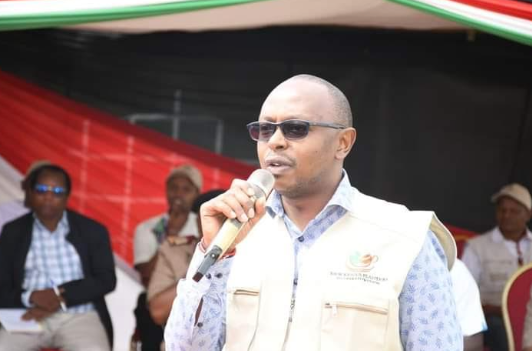The new Kenya Planters Cooperative Union (New KPCU) has reported that it has disbursed Sh5 billion in cherry fund loans to 371,242 farmers, thanks to low interest rates and improved governance in the disbursement systems.
According to the coffee cherry advance developing fund report released by the organization, as of August 5, 2024, loan advancements to farmers have surged by 354.5% since mid-November 2023.
Timothy Mirugi, the managing director of New KPCU, stated that the increased demand for loans from farmers is due to the absence of collateral requirements beyond the coffee and cherry themselves and the simplified application process compared to traditional financial institutions, as long as the applicants are verified coffee producers in Kenya.
Additionally, the quick disbursement and repayment of loans are facilitated through the Direct Settlement System (DSS) once coffee is sold. This system, implemented by Co-operative Bank, has helped resolve delays in payments to farmers.
The Nairobi Coffee Exchange appointed Co-op Bank to provide the DSS technology platform for coffee trading, as stipulated in the new coffee trading regime overseen by the Capital Markets Authority. Co-op Bank was selected as the DSS service provider following a competitive bidding process involving nine financial institutions.
Coffee market participants, including brokers, traders, warehousemen, farmers, and other service providers, have received training on how to use the DSS. Since the start of the 2023-24 coffee year in October 2023, Sh1.5 billion has been recovered through the DSS.
“As of November 14, 2023, farmers had borrowed Sh1.1 billion. New KPCU, in collaboration with various stakeholders, has actively conducted awareness sessions across the country to emphasize the importance of utilizing the fund,” Mirugi noted.
In the past nine months, the Sh5 billion borrowed by 371,242 farmers represents an increase of Sh3.9 billion since November 2023.
Seven counties in the Mount Kenya region have borrowed a total of Sh2.9 billion, accounting for 58% of the total amount disbursed. Nyeri County leads the list of beneficiaries, with 70,660 coffee growers borrowing Sh701.1 million. Kirinyaga follows closely, where 70,353 farmers have borrowed Sh566.7 million.
In Kiambu, Murang’a, Embu, Meru, and Tharaka Nithi counties, approximately 109,152 farmers have accessed Sh557.9 million, Sh482.8 million, Sh330 million, Sh254.2 million, and Sh39.5 million, respectively. Additionally, farmers from Trans Nzoia, Uasin Gishu, Nandi, Migori, Nyamira, Baringo, and Kisii have received Sh582.7 million, benefiting around 19,963 farmers.
Between July 29 and August 5, New KPCU disbursed Sh69.2 million to 5,370 beneficiaries across 14 counties, including Bungoma, Embu, Kericho, Kiambu, Machakos, Nandi, Trans Nzoia, Tharaka Nithi, Nyamira, Meru, Migori, Murang’a, Nakuru, and Nyeri. The highest disbursement during this period occurred in Machakos County, where 4,915 coffee farmers received a cherry advance of Sh45.9 million.
This funding primarily went to smallholder coffee estates and growers, with farmers in Machakos currently in the peak of the coffee picking season. Mirugi confirmed that the highest disbursement to a specific farmers’ cooperative society was to Mukuyuni, where 879 farmers benefited from a cherry advance of Sh13.8 million at a rate of Sh40 per kg of cherry.
During the 124th Session of the International Coffee Organization (ICO) at the Kenyatta International Convention Centre (KICC) in Nairobi in March 2019, former President Uhuru Kenyatta announced the establishment of a Sh3 billion cherry advance revolving fund to help revive the struggling coffee sub-sector.
The Kenya Kwanza government further boosted the fund with an additional Sh4 billion in December 2023 to accelerate the recovery of this key foreign exchange earner.
In June this year, the government initiated a process to inject Sh6.7 billion into a coffee farmers’ bailout plan. Meanwhile, the government continues to implement reforms in the sector, guided by the Coffee Policy 2023, Coffee Bill 2023, and the Cooperatives Bill 2023. Notable reforms include the restructuring of the Nairobi Coffee Exchange, which has allowed coffee cooperative unions to participate in the auction process.
About 15 cooperative unions had been licensed as of June and participate on the weekly trading floor of the auction.
Meanwhile, President William Ruto has advised coffee cooperatives to desist from seeking loans from commercial banks and instead borrow from the Coffee Cherry Advance Revolving Fund.
The fund was established to provide affordable, sustainable and accessible cherry advance to smallholder coffee farmers with land under coffee not exceeding 20 acres.



